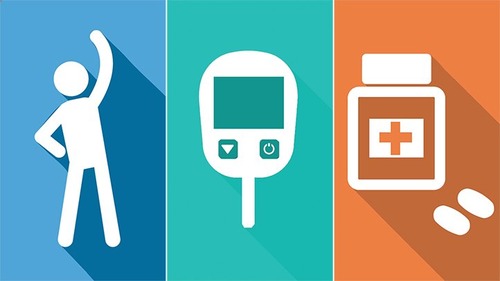Diabetes Prevention and Awareness: The Importance of Regular Screenings
The Rising Health Concern
Understanding Diabetes
Before delving into the significance of regular screenings, let’s first understand diabetes. Diabetes is primarily categorized into two types: Type 1 and Type 2.
- Type 1 diabetes is an autoimmune condition where the body’s immune system mistakenly attacks and destroys insulin-producing cells in the pancreas. This type often develops in childhood or adolescence.
- Type 2 diabetes, on the other hand, is characterized by insulin resistance, where the body’s cells do not respond effectively to insulin. It typically develops in adults, but cases among children and adolescents are rising.
The Importance of Early Detection

Early detection of diabetes is crucial for effective management and prevention of complications. When diabetes goes undiagnosed, it can lead to a range of health issues, including heart disease, kidney problems, and nerve damage.
Regular screenings play a pivotal role in identifying individuals at risk or those who may already have diabetes but are unaware of it. These screenings involve simple blood tests that measure blood sugar levels.
Benefits of Early Detection
Early detection of diabetes offers several benefits:
- 1. Effective Management: When diabetes is diagnosed early, individuals can start managing their condition promptly through lifestyle changes, medication, or insulin therapy.
- 2. Prevention of Complications: Early intervention helps prevent or delay the onset of diabetes-related complications, such as cardiovascular problems and kidney disease.
- 3. Improved Quality of Life: Proper management of diabetes allows individuals to lead a healthier and more fulfilling life, with fewer limitations imposed by the condition.
Who Should Get Screened?
Screening for diabetes is recommended for specific groups:
- Individuals with Risk Factors: Those with a family history of diabetes, obesity, sedentary lifestyles, or a history of gestational diabetes during pregnancy should be screened regularly.
- Adults Over 45: Adults aged 45 and older should consider regular diabetes screenings, even if they have no apparent risk factors.
- Children and Adolescents: Given the increasing incidence of Type 2 diabetes in young individuals, screening should also be considered for children and adolescents with risk factors.
Frequency of Screenings
The frequency of screenings may vary depending on individual risk factors and medical history. However, a general guideline is to have a diabetes screening at least once every three years for adults over 45.
Take Action Today

Don’t wait until diabetes symptoms become evident. Taking proactive steps to get screened is a crucial part of diabetes prevention and awareness. Early detection can make a significant difference in managing this condition and improving your overall health and well-being.
In conclusion, regular screenings for diabetes are essential for early detection and effective management. By understanding your risk factors and taking timely action, you can take control of your health and reduce the potential impact of diabetes-related complications.
